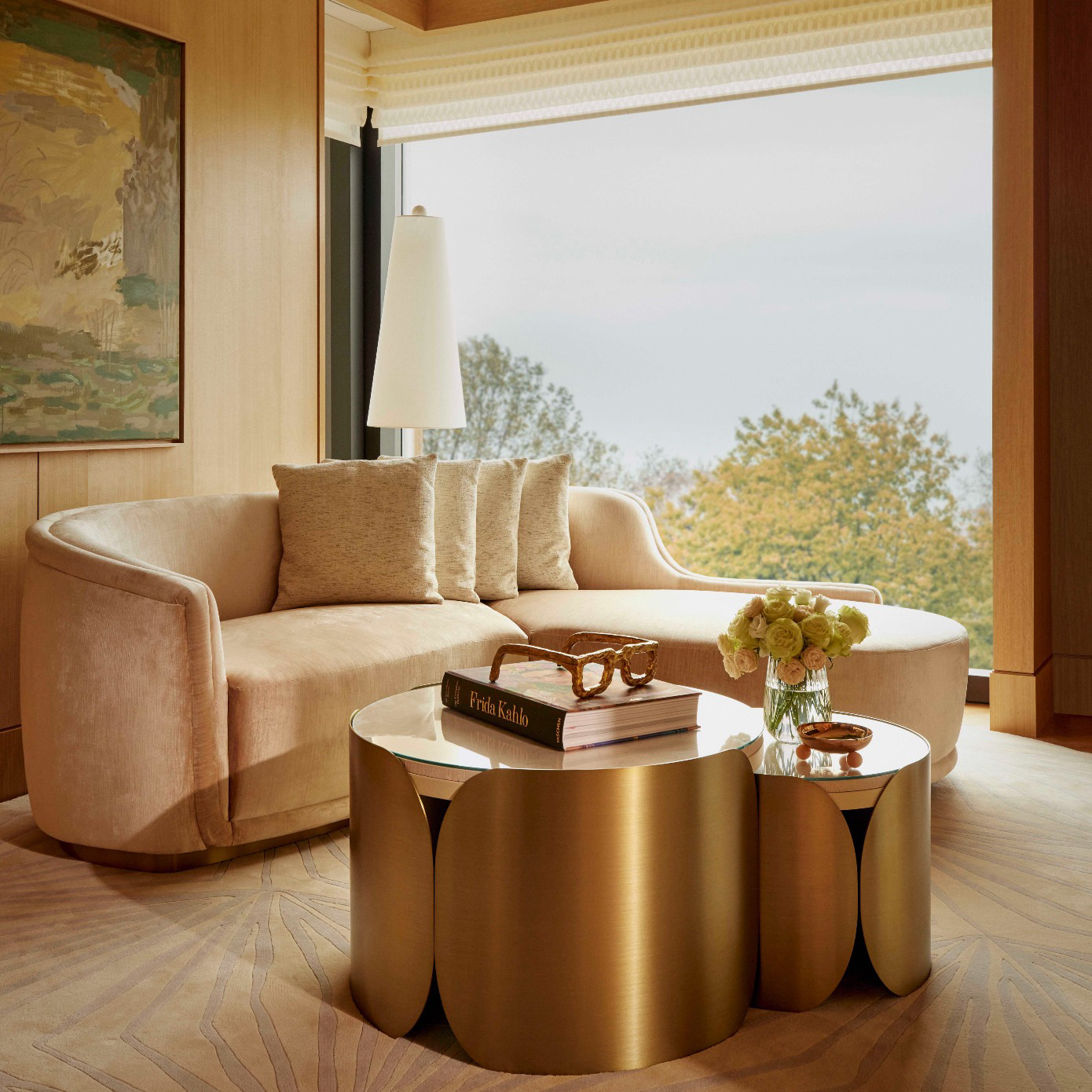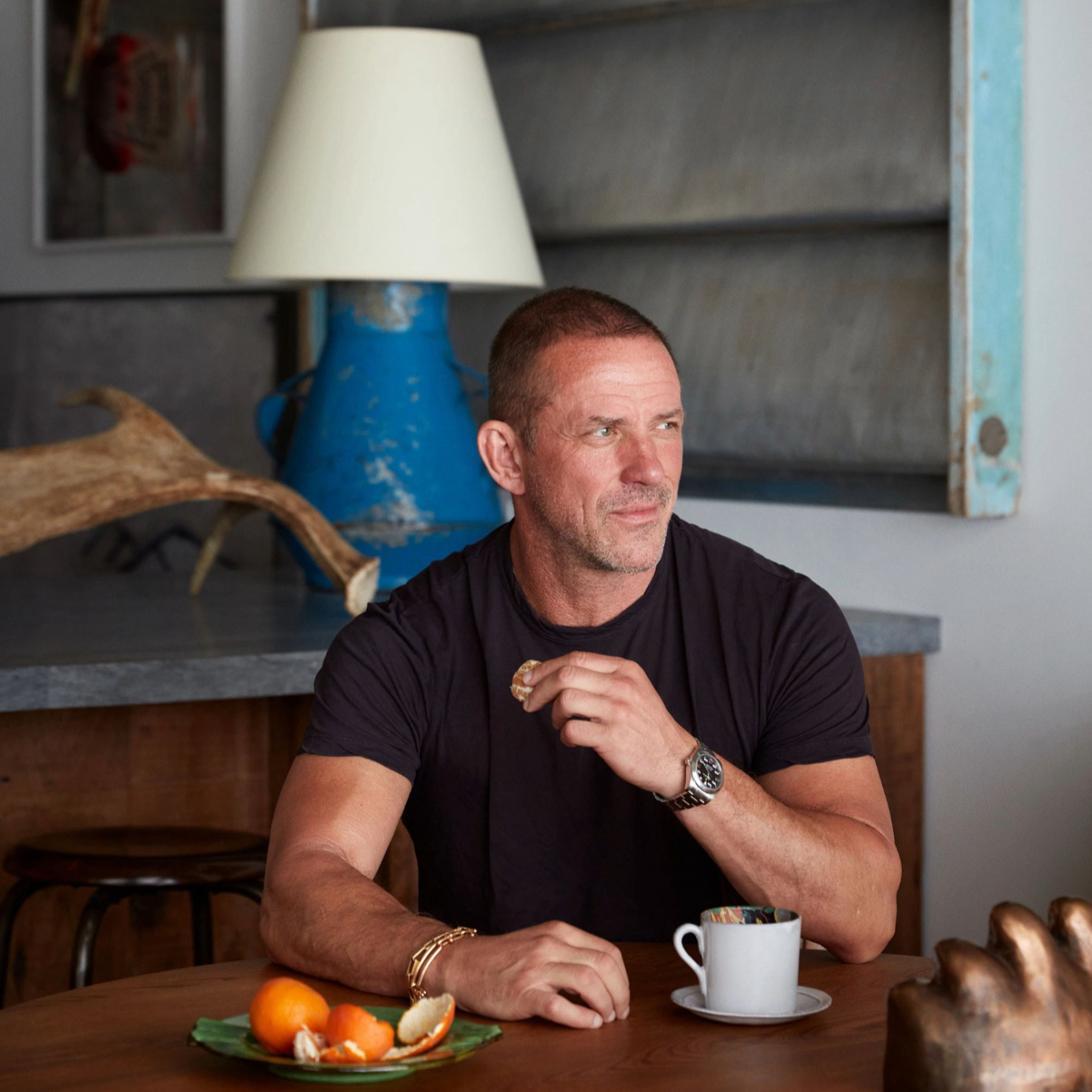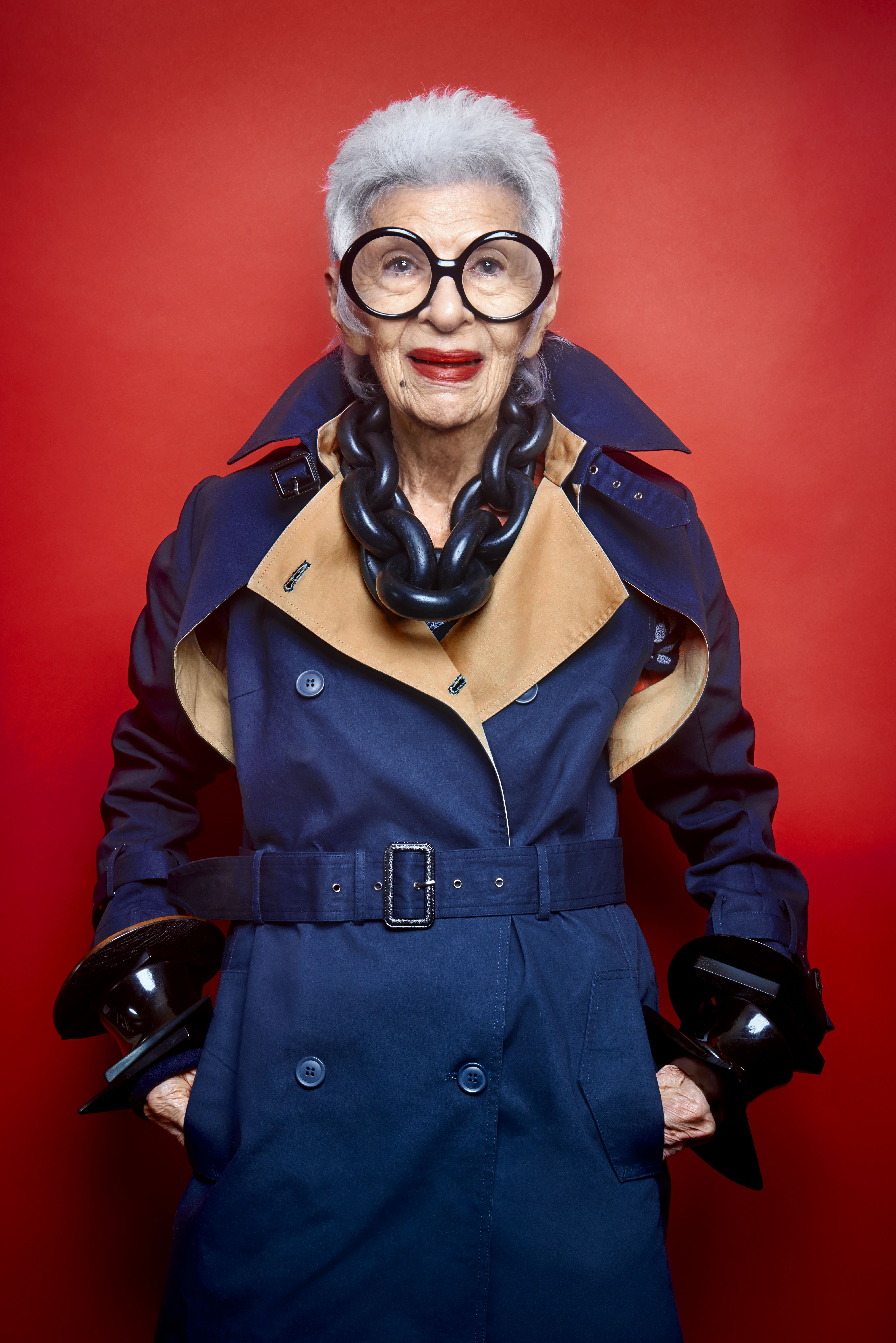
Produced by Michael Kirkland.
To 96 year old Iris Apfel, retirement would be “a fate worse than death.” After a celebrated career in interior design, she used her astounding knowledge of textiles to parlay into a fashion career entirely her own, completely unsubjected to seasons or trends.There isn’t anyone else like Apfel. A style icon in the truest sense of the term, her interior and sartorial passions have spanned decades; her famed closet historical catalog of a distinct voice. Her trademark tongue-in-cheek style—an eclectic mix of high and low, vintage designer pieces with flea market finds—has earned her a collection with the Home Shopping Network, pop-ups with Bergdorf Goodman, a line of home linens and furnishings, two book deals and an upcoming collection of colorful porcelain jewelry, which she describes as “not discreet.”
Apfel’s new book, Accidental Icon: Musings of a Geriatric Starlet, provides no instruction in how to capture her style, because Apfel is of the belief that one should develop a personal style based on the world around them instead of unimaginatively replicating someone else’s look. She does tell of being one of the first to wear denim in the 40's, her early jobs in fashion and interior design, building Old World Weavers, her interior design company founded in 1950 with her husband, Carl, the secrets to a long marriage, and her disdain for media. We chatted about the book, her inspirations, and what makes her so quintessentially herself.
Why a book of musings? I didn’t want to do another coffee table book and I wasn’t about to do a memoir—and I think how-to books are quite revolting.
I agree. I mean how can one person tell another how to get dressed when they can’t see what they look like or know what they can afford? It’s ridiculous. Anyway, I kept saying no for years and years… one week, I got three different calls from three different major publishing houses and they all wanted me to do the same kind of book. They told me I have a great many young fans and that a book that is not too large or too expensive that young people would like would be a book of musings. I thought it would be fun. It all worked out.
One of the things I love about your style is that it’s true personal style—not at all based on trends. Do you pay attention to the runways at all? Not really. It’s a waste of time because there’s really nobody with anything to say these days. It’s all the same old, same old.
A lot of it is. There’s also this palatable movement away from the materiality of clothing with designers focusing on media instead of textiles, sewing, movement... All the new designers are a bunch of media freaks. I think that’s because they’re really not designers. All of the young people—I don’t know if they’re not well-trained or what, but they’re not like the old time designers. Maybe they can sketch, I guess. They may be editors or dress-makers or something, but I don’t think they’re designers in the true, old-fashioned sense of the word.
Do you think those who are designers in the true old-fashioned sense can survive? Might there be a market for them again? Obviously not. Because, I don’t know, where are they all?
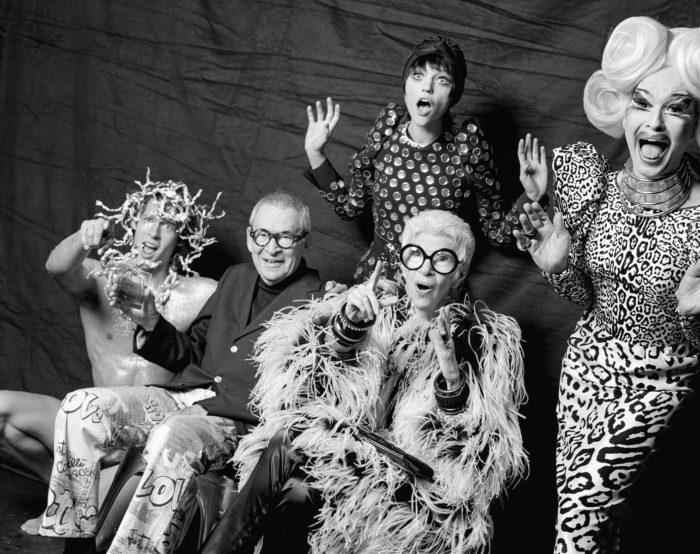
You’ve also said that fast fashion is an asset because it offers young people the chance for experimentation. Well fast fashion is good for that purpose: if you’re trying to find yourself, or what suits you, or develop a style. In that sense, fast fashion is a godsend because you can try all these things you couldn’t do when I was growing up. You really had to think not twice but maybe six times before you bought something because everything was well-made and costly. It’s a double-edged sword—but in a way, it’s good.
Do you think you would appreciate fast fashion if you were a young person today? I would have appreciated the fact that I would have the opportunity to try a lot of things. Not think about them, but try them.
Are there any stores you think offer quality designs at a lower price point? People tell me that Zara is so good. I was only in Zara once and that was in Barcelona. It was huge, it was like being in a candy store. I loved it. I don’t need very much so I don’t shop very often. Frankly, I don’t have the time! I’m so busy; I’m a workaholic.
Do you have any projects coming up that you can share? Well, Barbie dolls are coming. I’m doing a collection of porcelain jewelry for Bernardaud—big statement pieces. So that’s exciting.
What are the pieces like? They’re not discreet jewelry. They’re big and bold and fun. The first piece just came out and we’re hoping the collection will be in the fall. It involves a lot of experimentation because it hasn’t been done before. There is some porcelain jewelry around, but it’s rather delicate.
You’ve had a wide-spanning career, over interior design, clothes, makeup, and accessories. How do these different fields speak to one another? For me, they’re very related. I don’t change my aesthetic and I don’t think anyone who’s true to themselves will change the way they think, whether they’re doing a home or doing fashion. For me, it’s an expression of who I am and the way I think.
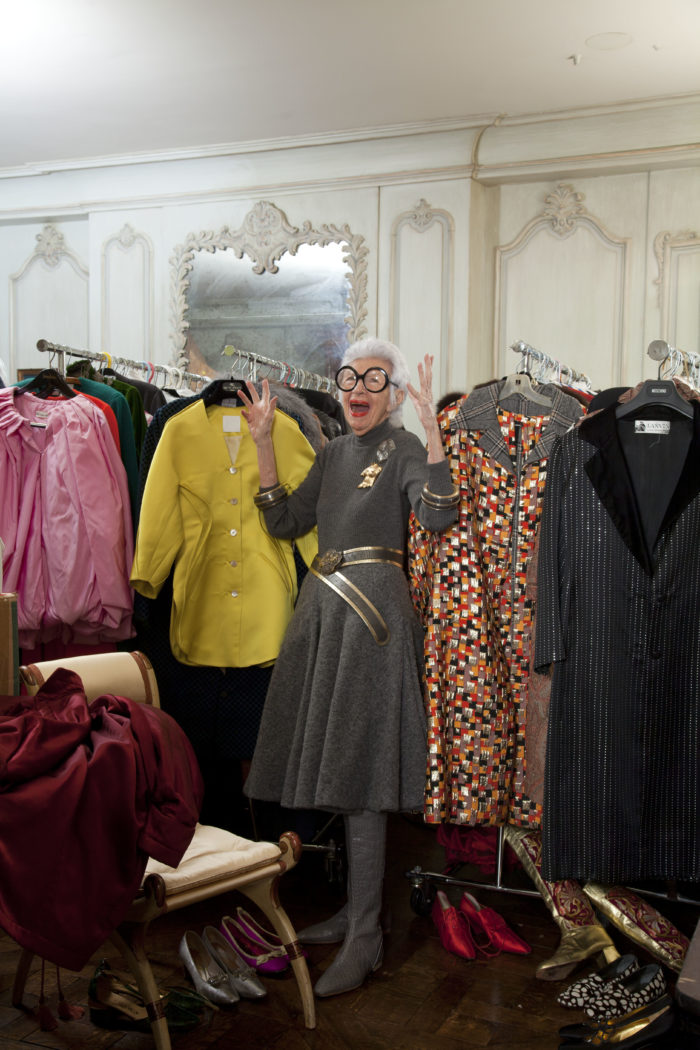
I love the name of the book: ‘Accidental Icon.’ You’ve essentially created a business out of being yourself, which is something so many young people are inclined to attempt these days. Well, they give lip service, I’ll say that. I don’t think they really work at it—it’s not easy. If I was asked to give advice to young people, I would tell them to try to develop themselves and not follow and be like everybody else. It’s no fun. I think you have to learn who you are and work at it, see what comes out, what happens.
You’ve said that you don’t approve of social media, but when I look at your page on Instagram, I feel like your style has that unique, counterintuitive quality of inspiring the viewer to dress more like themself instead of copying the image in front of them. The copying, when young people look and want a roadmap—that’s the problem. I think it’s a ruination. I’m really sad about that. It’s killed ingenuity, it’s killed curiosity. You’ve just got to go your own way. Technologically, I live in the late 17th century. I don’t even do email. I think it’s all too much. If someone asks if they can send me an email, I say "No, darling, send me a pigeon!"
Do you work with many young people in fashion? I do a fashion program with the University of Texas. They made me an honorary professor, so I’m very excited about that. It’s been very rewarding, because our kids are pretty good, and they’ve won some pretty big scholarships. They write to me and tell me how I’ve changed their lives. It’s wonderful.
Do you have any style icons? Or do you not think in that framework? I don’t think in that framework now, but years ago there were a few. I was extremely enamored with Pauline de Rothschild, and… oh my, it’s on the tip of my tongue. She was a Standard oil heiress, there’s a museum for her in Taos, New Mexico…
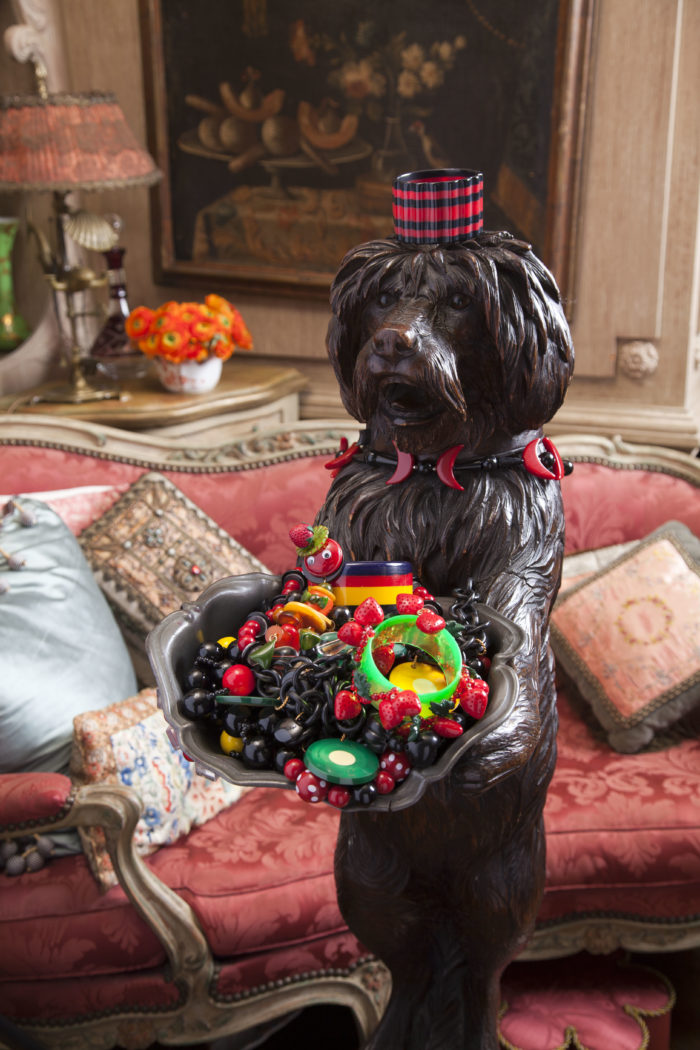
Millicent Rogers? Ah, yes, thank you. You’re one of the few interviewers who know. She was extraordinary, as far as I was concerned.
Your style inspiration is much more fluid, then. Everything comes out of your experiences, or at least it should. I’m a sponge, I walk around absorbing. And somebody squeezes me and something comes out! I’ve always enjoyed working very much. I don’t do things I don’t enjoy doing. Since my husband passed away two and a half years ago—we were together 68 years, and did everything together—I had a great hole in my life and to sit home and cry all day would not have made him very happy and would have made me miserable. He was almost like a stage mother with my career. He was truly supportive, which is so unusual, but he encouraged me. I have a lot of interesting projects to do, so I just work day and night.
Do you plan on slowing down anytime soon? I have slowed down, but my slowed down state is still pretty hectic. But I enjoy it, so I hope it keeps coming. I learn something every day.
Cultured Magazine and J Nelson hosted the exclusive Palm Beach-Miami launch of Iris Apfel’s Accidental Icon: Musings of a Geriatric Starlet.

